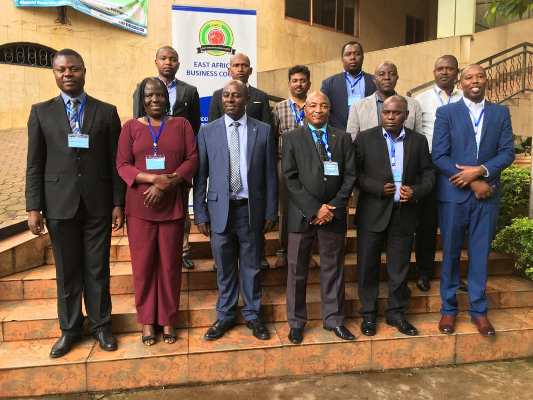For many Ugandans, the gold found deep underground in the hills of Mubende District was a lifeline.
Over the past five years, an estimated 70,000 people have left their homes and moved to the gold fields, seeking – if not their fortunes – a way of feeding their families.
When BBC reporter visited Mubende a few weeks ago, the dusty hillside was crawling with activity, as if an imaginary film director had shouted “action” on the set of an old Western movie.
Everywhere you looked, people were busy.
BBC reports that young men with muddy faces climbed out of pits 150 metres deep, hauling huge sacks of rubble; others were busy breaking down clumps of rock, loading up trucks or panning for gold.
Women stood in dark puddles, swishing water around plastic tubs, closely watching for a flash of yellow.
“In our culture it’s taboo for women to go down the pit,” the mine chairman told me. “They believe when they go down there, the gold disappears.”
Instead, several women were working in the many restaurants and shops that had sprung up in the nearby camp. They were stalls selling bananas, chicken and yoghurt.
There was also a medical clinic, some churches and a mosque on site.
The houses were made of blue plastic sheeting, wood and corrugated iron – the typical shanty houses that I’ve seen elsewhere in Africa. I visit the local bar, where music is playing – until the power goes off.
Men worked in the mines 24 hours a day, but it was clear the operation was completely unregulated. There wasn’t a helmet to be seen, and some of the workers weren’t wearing any shoes. But no one I met seemed worried by the long hours or poor conditions.
Florence Nampijja, who used to sell second-hand clothes, said her life had changed considerably since she joined the gold rush.
“With good panning, I’m able to look after my four children and my extended family,” she said. “I hope to buy land and put up a good house for my children, feed them well, and send them to better schools.”
Pit owner Ivan Kauma Male enthusiastically showed me around the site. He had bigger dreams.
“When I find gold most of my wishes will be completed,” he told me. “Like driving a Porsche car, putting up good houses, and sending my children to good schools.”
“This is something I’ve invested in for two and a half years. So I want to get my money out of it.”
Image caption Bags of rubble were checked for signs of gold
But those dreams have been put on hold.
A few days ago Ugandan soldiers armed with tear gas shut down the Mubende mines. They were acting on the instructions of the country’s government. The miners and their families were told they had just hours to evacuate the area.
Many are still looking for a way to get home. The mines are a four-hour drive from the capital Kampala, and the only road in is a bumpy dirt track.
“People are stranded on the road with mattresses, jerry cans, saucepans and children,” Ivan told me, speaking on the phone from a nearby village.
The Ugandan government issued a statement blaming the shutdown on unsafe mining practices, and the presence of foreigners in the camps. The miners say the vast majority of people living in the camps are Ugandan. But they acknowledge the mining was illegal. No one had a license.
Mark Asaph Jjombwe heads up the Artisinal and Small Scale Miners Association.
“The association tried to get a license, although they’ve not yet replied to us,” he says.
The miners say Uganda’s President Yoweri Museveni knew about the illegal mining, but chose to ignore it.
Mark explains: “He knows we cannot dig the big gold. So he says, ‘You can have those petty, petty ones. My people, you go and try your luck’.”
But that appears to be over for now at least.
A statement from Uganda’s Ministry of Energy and Mineral Development said the miners will be registered over the next three months, and the industry will be regulated.
But the miners are skeptical.
“The government believes the investors are going to bring a pack of money, more than the artisans who can actually generate some income for their children,” says Ivan.
“In Uganda we are jobless. I hold a degree in electrical engineering. It’s not because I don’t want to do my work, but they cannot pay me.”
The watchdog Global Witness recently criticised the Ugandan mining industry, describing it as “infested with corruption from bottom to top”.
The group accused a former government minister of processing and exporting hundreds of millions of dollars’ worth of gold.
The mines in Mubende District had meant the country’s riches weren’t just in the hands of the elite.
Now, thousands of Ugandans are jobless again.





